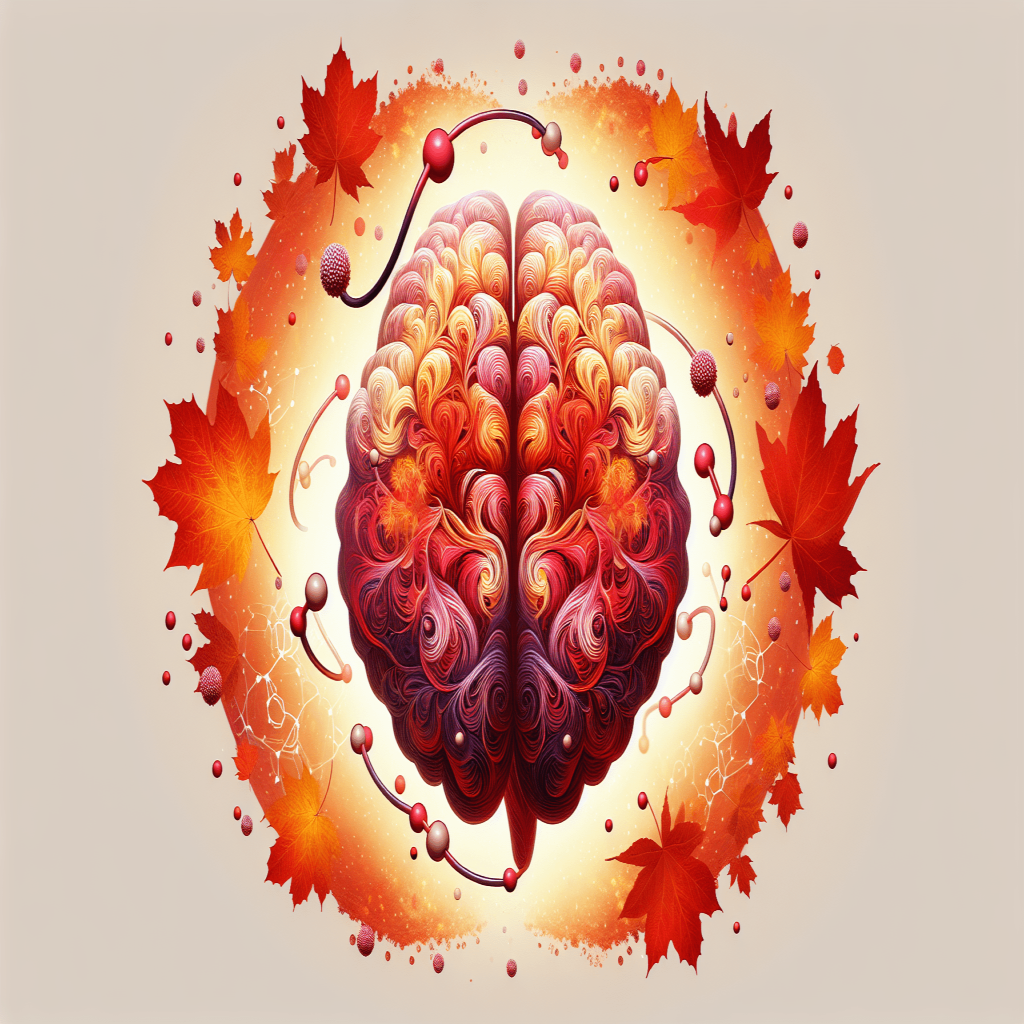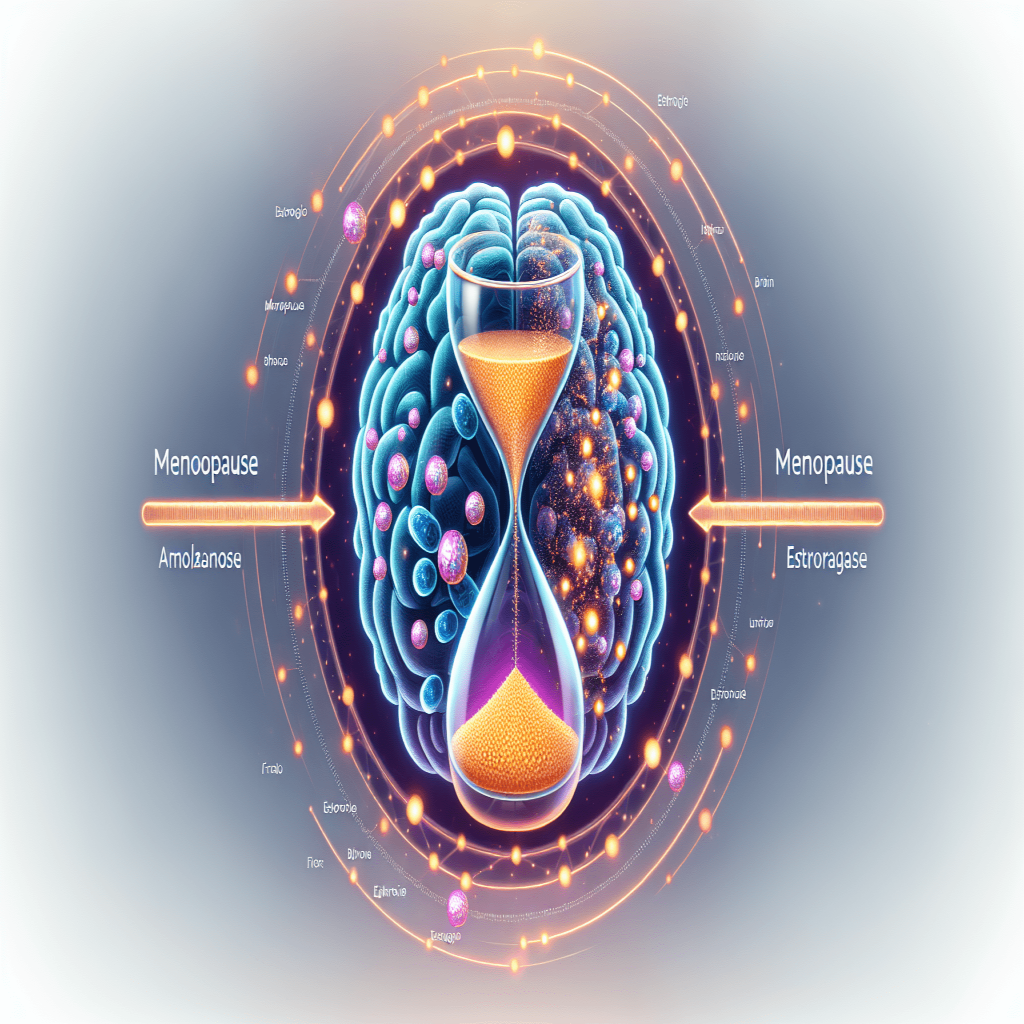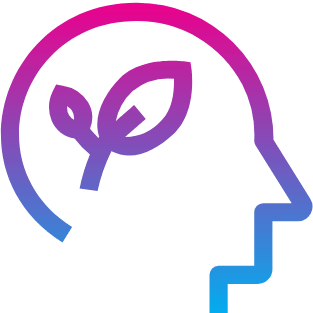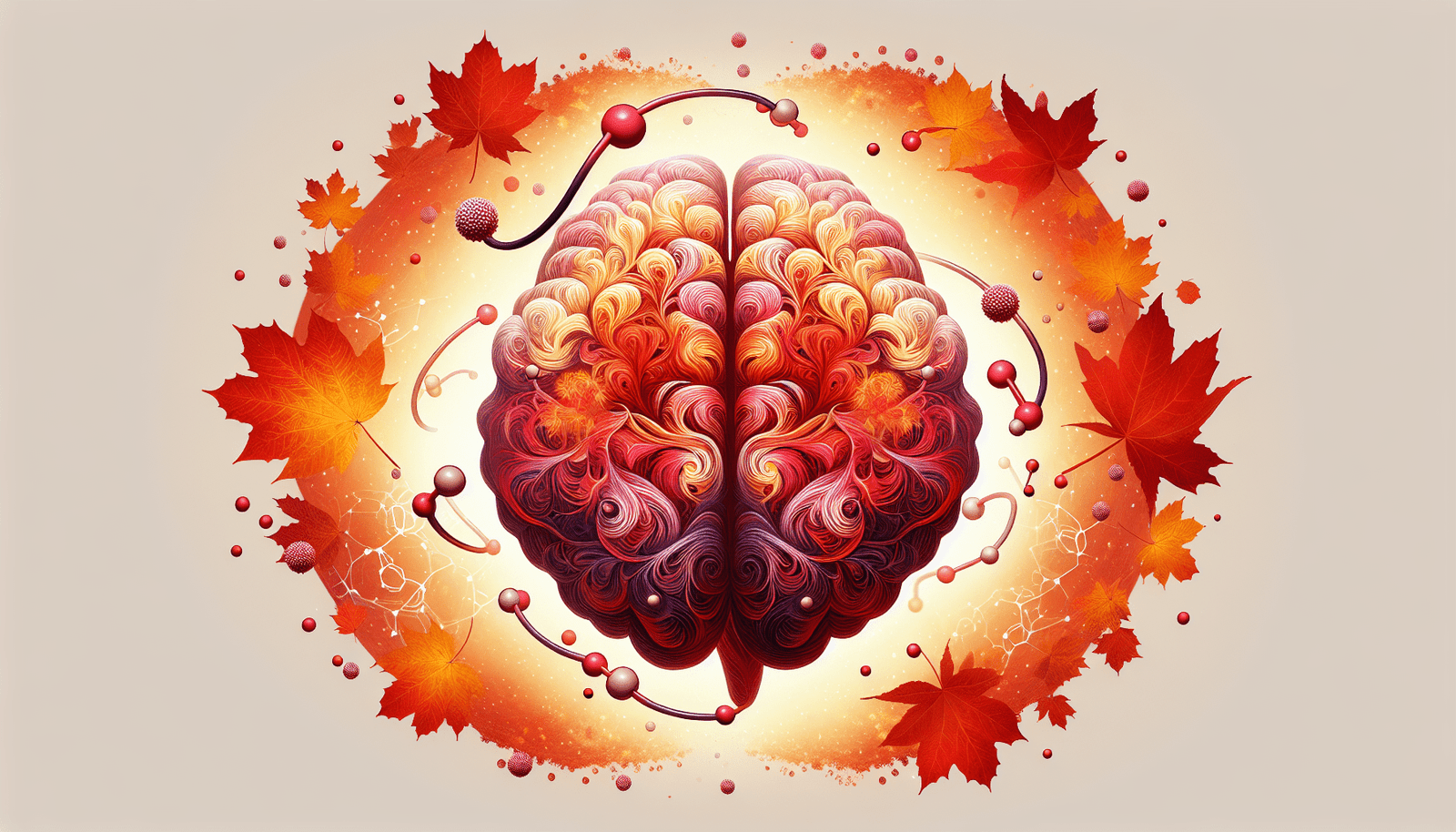If you’re approaching or already in the stage of menopause, you may be familiar with the fact that estrogen levels decrease, leading to various symptoms. But did you know that the decline of estrogen isn’t just happening in your body, but also in your brain? This article will shed light on the importance of estrogen in the brain during menopause and why addressing this reduction is crucial for managing your symptoms. Estrogen isn’t just a hormone exclusive to women; it plays a vital role in regulating the menstrual cycle and maintaining bone density. However, after the age of 40, estrogen levels begin to plummet, causing a range of menopause symptoms. Let’s delve into the surprising truth about the impact of estrogen on your brain and why traditional treatments may not be effective for everyone. Stay tuned to discover the secrets of managing menopause symptoms and taking control of your well-being.

The Impact of Declining Estrogen Levels on Menopause Symptoms
Menopause is a natural transition that every woman goes through as she reaches a certain age. It is characterized by the cessation of menstrual periods and the decline of estrogen levels in the body. While the connection between menopause and declining estrogen levels is well-known, what many people don’t realize is the significant impact that this decline has on menopause symptoms, especially in the brain.
Estrogen’s role in the menstrual cycle and reproduction
Estrogen is often referred to as the “female sex hormone,” but its functions go beyond just reproductive health. In women, estrogen plays a crucial role in regulating the menstrual cycle, fertility, and the ability to conceive. During the reproductive years, estrogen levels fluctuate throughout the menstrual cycle, preparing the uterus for potential pregnancy and maintaining a healthy reproductive system.
Loss of bone density and joint discomfort
One of the most well-known effects of declining estrogen levels is the loss of bone density, leading to an increased risk of osteoporosis and fractures. Estrogen is essential for maintaining bone strength and density, and as estrogen levels decline during menopause, women become more vulnerable to bone loss and associated complications.
Additionally, some women may experience joint discomfort during menopause, which can affect their daily activities and quality of life. Estrogen plays a role in joint health by maintaining the integrity of cartilage and protecting against inflammation and degeneration. The decline in estrogen levels can lead to joint pain, stiffness, and decreased mobility.
Estrogen as the master conductor of the body’s processes
Estrogen is often referred to as the body’s master conductor because of its role in regulating various physiological processes. It acts as a signaling molecule, influencing the production of other hormones, growth factors, and metabolic factors. Estrogen affects multiple body systems, including the cardiovascular system, the immune system, and brain function.
The Decline of Estrogen Levels After 40
After the age of 40, women begin to experience a gradual decline in estrogen levels as they approach menopause. This decline is a natural part of the aging process and can vary from woman to woman. While some women may not notice any significant changes, others may experience a range of menopause symptoms as a result of the decline in estrogen.
The exact mechanisms behind the decline in estrogen levels are not fully understood, but it is believed to be influenced by a combination of genetic factors, lifestyle factors, and the natural aging process. As estrogen levels decrease, women may experience symptoms such as hot flashes, night sweats, mood swings, vaginal dryness, and sleep disturbances.
The Importance of Estrogen in the Brain
Estrogen plays a crucial role in brain function and has a significant impact on cognitive function, mood, and emotions. The brain has estrogen receptors throughout its various regions, indicating the importance of estrogen in maintaining brain health. When estrogen levels decline during menopause, it can have profound effects on the brain and contribute to the development of menopause symptoms.
Estrogen’s role in brain function
Estrogen is involved in numerous aspects of brain function, including memory, attention, and mood regulation. It has been shown to enhance synaptic function, support the growth and survival of neurons, and protect against oxidative stress and inflammation in the brain. Estrogen also promotes the release of neurotransmitters, such as serotonin and dopamine, which are involved in mood regulation.
Effects of estrogen decline on cognitive function
Cognitive decline is a common concern among women going through menopause. Estrogen has been linked to various cognitive functions, including memory, executive function, and information processing. As estrogen levels decline, women may experience difficulties with memory and concentration, as well as problems with word retrieval and multitasking.
Impact of estrogen loss on mood and emotions
Estrogen plays a crucial role in regulating mood and emotions. It is often referred to as a natural antidepressant because of its effects on serotonin and other neurotransmitters involved in mood regulation. As estrogen levels decline, women may experience mood swings, irritability, anxiety, and feelings of sadness or depression. These changes in mood can significantly affect a woman’s quality of life and overall well-being.

Traditional Treatments for Menopause Symptoms
Traditionally, hormone replacement therapy (HRT) has been the go-to treatment for menopause symptoms. HRT involves taking estrogen and sometimes progesterone to replace the hormones that the body is no longer producing in sufficient quantities. This helps alleviate many of the symptoms associated with menopause, such as hot flashes, night sweats, and vaginal dryness.
Hormone replacement therapy
HRT can be administered through oral tablets, patches, gels, creams, or injections. It is typically prescribed based on individual needs and can be tailored to address specific symptoms. However, HRT is not without risks and side effects, and its use requires careful consideration and monitoring by a healthcare professional.
Non-hormonal therapies
For women who cannot or prefer not to use HRT, there are non-hormonal therapies available to manage menopause symptoms. These include medications such as selective serotonin reuptake inhibitors (SSRIs) and gabapentin, which can help alleviate hot flashes and mood disturbances. Lifestyle modifications, such as maintaining a healthy diet, regular exercise, and stress management techniques, can also play a significant role in symptom management.
Challenges with Traditional Treatments
While traditional treatments like HRT can be effective for many women, there are challenges and limitations associated with their use.
Variability in treatment effectiveness
Not all women respond to traditional treatments in the same way. The effectiveness of HRT can vary depending on individual factors such as age, overall health, and the specific symptoms experienced. Some women may find relief from their menopause symptoms with HRT, while others may find little to no improvement or experience unwanted side effects.
Side effects and risks
HRT is associated with certain risks and side effects that need to be considered when evaluating treatment options. These can include an increased risk of breast cancer, heart disease, stroke, and blood clots. It is essential for women considering HRT to have a thorough discussion with their healthcare provider to weigh the potential benefits against the risks associated with treatment.
The Discovery of Estrogen Decline in the Brain
Recent research has shed light on the specific impact of estrogen decline in the brain during menopause. Scientists have discovered that the brain is one of the organs that experiences the most significant loss of estrogen during this transition.
Research findings on estrogen levels in the brain
Studies have shown that estrogen levels in the brain decline at a faster rate than in other parts of the body. This decline can have profound effects on brain function and contribute to the development of menopause symptoms. Understanding the specific changes that occur in the brain during menopause is crucial for developing targeted treatments that address the root causes of these symptoms.
Identification of the brain as the organ with the most estrogen loss
When researchers closely examined estrogen decline in women’s bodies, they discovered that the brain experienced the most significant loss of estrogen. This finding highlights the importance of addressing estrogen levels in the brain when managing menopause symptoms. By targeting the brain and restoring estrogen levels, it may be possible to alleviate symptoms more effectively and improve overall well-being.
Significance of brain estrogen decline in menopause symptoms
The decline of estrogen in the brain has significant implications for menopause symptoms. Estrogen plays a vital role in brain health, influencing cognition, mood, and overall brain function. When estrogen levels decrease, it can lead to cognitive decline, mood disturbances, and other neurological symptoms commonly associated with menopause. By understanding the impact of estrogen decline on the brain, researchers and healthcare professionals can develop more targeted and effective approaches to managing menopause symptoms.
Alternative Approaches to Managing Menopause Symptoms
In addition to traditional treatments, there are alternative approaches to managing menopause symptoms that focus on addressing estrogen levels in the brain and promoting overall brain health.
Targeting estrogen levels in the brain
Newer treatments aim to specifically target estrogen levels in the brain to alleviate menopause symptoms. These treatments may involve low-dose vaginal estrogen therapy or selective estrogen receptor modulators (SERMs), which selectively target estrogen receptors in different tissues. By focusing on the brain’s estrogen levels, these therapies aim to provide symptom relief while minimizing potential risks and side effects associated with traditional hormone replacement therapy.
Importance of brain health in managing menopause symptoms
Maintaining brain health is crucial for managing menopause symptoms effectively. Lifestyle factors such as regular exercise, a healthy diet, and stress management techniques can support overall brain function and help alleviate symptoms. Engaging in activities that stimulate the brain, such as puzzles, reading, and learning new skills, can also be beneficial for cognitive health during menopause.
Non-hormonal strategies for symptom relief
Non-hormonal strategies can also be effective in managing menopause symptoms. These may include relaxation techniques, acupuncture, herbal supplements, and over-the-counter remedies. While these approaches may not directly target estrogen levels in the brain, they can provide relief for specific symptoms and improve overall well-being. It is essential to discuss these options with a healthcare provider to ensure their safety and efficacy.
Promising Advances in Estrogen Therapy
Researchers are continually exploring new options and advances in estrogen therapy to provide more targeted and effective treatments for menopause symptoms.
Selective estrogen receptor modulators (SERMs)
SERMs are a class of medications that selectively target estrogen receptors in different tissues, including the brain. These medications can mimic estrogen’s beneficial effects without some of the risks associated with traditional hormone replacement therapy. SERMs may be prescribed to alleviate menopause symptoms such as hot flashes, night sweats, and vaginal dryness.
Low-dose vaginal estrogen
Low-dose vaginal estrogen therapy is an option for women who experience vaginal dryness and discomfort during menopause. This treatment involves the use of estrogen creams, tablets, or rings that can be inserted directly into the vagina to provide localized relief. By targeting the vaginal tissues, low-dose vaginal estrogen therapy can help alleviate symptoms without significantly affecting other parts of the body.
Estrogen alternatives and supplements
In addition to traditional hormone replacement therapy, there are alternative estrogen alternatives and supplements available. These may include plant-based estrogens, also known as phytoestrogens, which can mimic the effects of estrogen in the body. Other supplements, such as black cohosh, soy, and red clover, have been studied for their potential benefits in relieving menopause symptoms. However, it is important to consult with a healthcare provider before starting any new supplements to ensure their safety and efficacy.
Lifestyle Factors to Support Estrogen Balance
Taking care of your overall health and well-being can help support estrogen balance and alleviate menopause symptoms. Several lifestyle factors can play a role in maintaining optimal estrogen levels and promoting overall hormone balance.
Dietary choices to support estrogen production
Eating a balanced diet that includes a variety of fruits, vegetables, whole grains, and lean proteins can support optimal estrogen production. Certain foods, such as soy, flaxseeds, and legumes, contain phytoestrogens that can help regulate estrogen levels in the body. Avoiding processed foods, excessive sugar, and alcohol can also contribute to overall hormonal balance.
Regular exercise and its effect on estrogen levels
Regular physical activity has been shown to have a positive impact on estrogen levels and overall hormone balance. Exercise can help regulate estrogen production, increase bone density, improve mood, and reduce menopause symptoms. Engaging in activities such as walking, jogging, swimming, or yoga for at least 30 minutes a day can be beneficial for managing menopause symptoms and promoting overall well-being.
Stress management and its impact on hormone balance
Chronic stress can disrupt hormone balance, including estrogen levels. Implementing stress management techniques such as meditation, deep breathing exercises, yoga, or engaging in hobbies can help reduce stress and promote hormone balance. Prioritizing self-care, getting enough sleep, and seeking support from friends, family, or support groups can also play a significant role in managing menopause symptoms.
Conclusion
The impact of declining estrogen levels on menopause symptoms should not be underestimated. Estrogen plays a vital role in the menstrual cycle, reproduction, bone health, brain function, and overall well-being. As women approach menopause and estrogen levels decline, it can lead to a range of symptoms, including hot flashes, mood swings, cognitive changes, and other physiological changes.
While traditional hormone replacement therapy has been a common treatment for menopause symptoms, recent research has shed light on the importance of addressing estrogen levels in the brain. Targeted therapies that focus on restoring estrogen levels in the brain show promise in alleviating menopause symptoms with potentially fewer risks and side effects.
In addition to medical treatments, lifestyle factors such as a healthy diet, regular exercise, and stress management can play a significant role in supporting estrogen balance and promoting overall well-being during menopause. It is essential for each woman to work closely with her healthcare provider to determine the most appropriate and effective approach for managing her menopause symptoms based on her individual needs and preferences.




